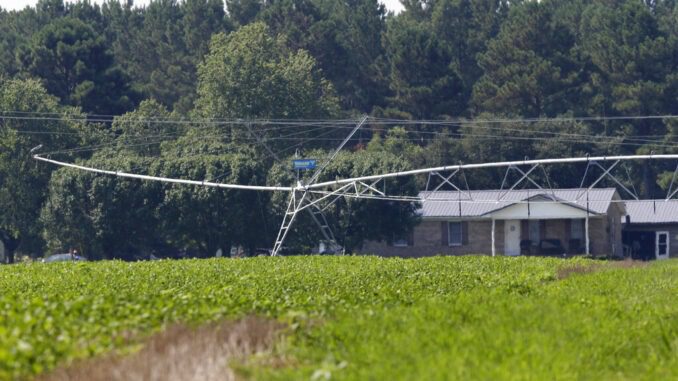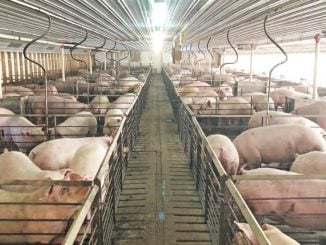
RALEIGH — A federal appeals court on Thursday upheld a 2018 jury verdict that led to awarding monetary damages in lawsuits filed against North Carolina hog operations, the Associated Press reported.
But judges ruled the jurors’ multimillion-dollar awards must be reconsidered in the decision.
An attorney representing these plaintiffs and others didn’t respond Thursday to repeated emailed requests for comment on the ruling and to confirm any agreement with Smithfield.
“The 4th Circuit’s split decision today rightly finds that the district court in this matter did not follow the law in North Carolina in regard to how punitive damages are decided and awarded. The lower court’s actions in this case allowed plaintiffs’ attorneys to unlawfully inflame the jury. This resulted in outrageous awards by an urban jury against a highly regulated rural farming operation,” said Keira Lombardo, Smithfield’s Chief Administrative Officer.
She continued, saying, “We disagree with other conclusions of the appellate court, while noting that Judge Agee’s dissent finds that cumulatively erroneous actions by the district court judge in this case are ‘so profound that a full new trial is necessary.’”
Details of the settlement announced by the company were not immediately disclosed.
The case ruled upon Thursday by the appeals panel was the first that went to trial among dozens of lawsuits filed against the industry. Five that went to trial went against Smithfield, leading to hundreds of millions of dollars in punitive damages later reduced because of state law capping such awards. While one lawsuit still resulted in $94 million in damages, more recent verdicts led to much lower compensation, reported the AP.
Circuit Judge G. Steven Agee wrote to say he would have given Murphy-Brown a new trial. The majority opinion was written by U.S. Circuit Judge Stephanie Thacker, who said there was ample evidence for jurors to conclude the company “persisted in its chosen farming practices despite its knowledge of the harms to its neighbors.” Smithfield ultimately removed its hogs from Kinlaw Farms.
“In the midst of a global pandemic, where food shortages have been commonplace, it is now the time to keep our full attention on the important work of producing good food in a responsible and sustainable way – rather than returning to the court for what would be ongoing and distracting litigation involving this farm and dozens of other farming operations. Farmers, grain growers, truck drivers, food processors – and so many tens of thousands more in North Carolina who depend on the pork industry to support their families – have lived under a cloud of uncertainty for too long,” Lombardo added.
Smithfield said it had put an end to this and similar nuisance cases filed in the state by either already on appeal that went against the company or hadn’t gone to trial.


